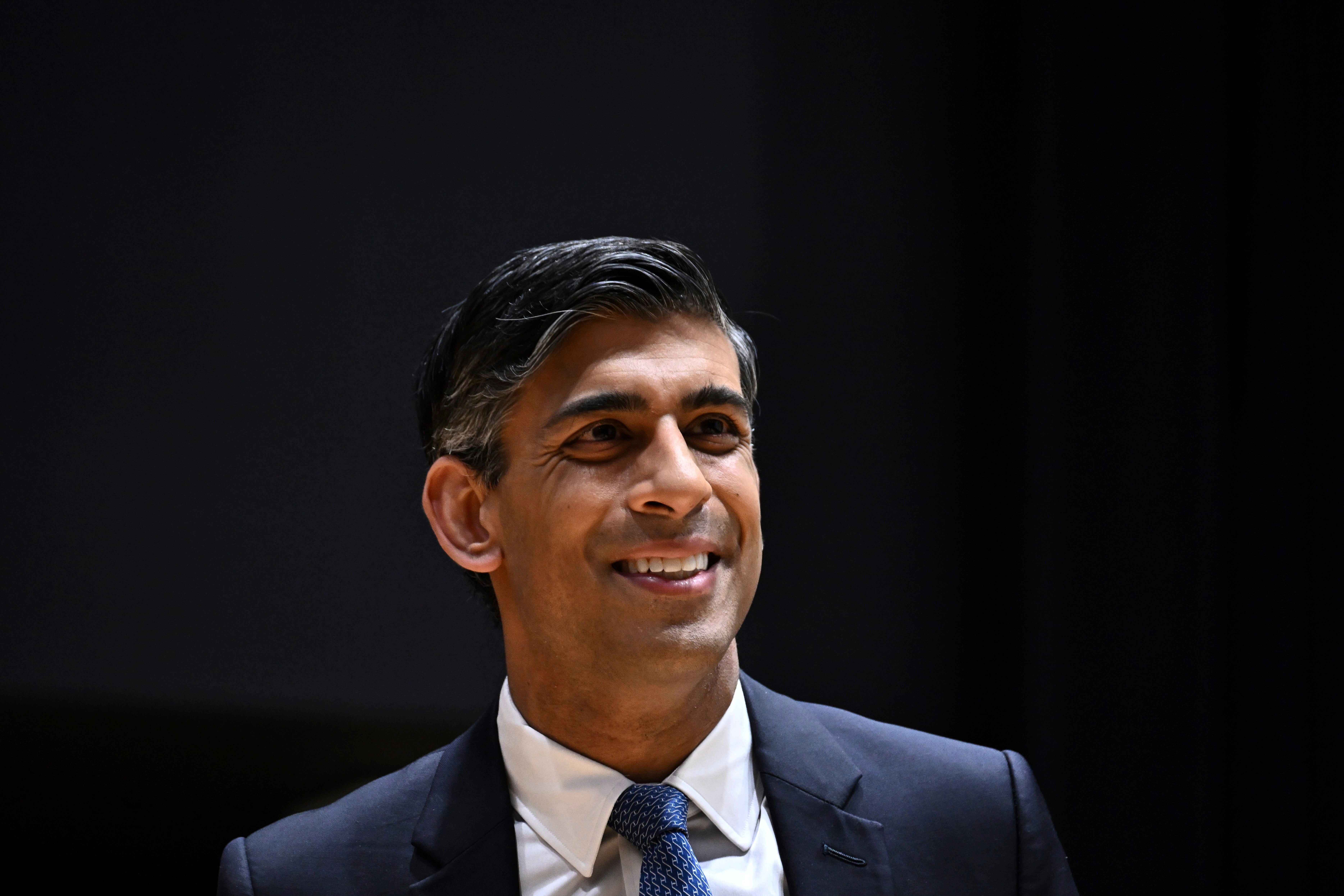Rishi Sunak is more popular than his discredited party, but it won’t be enough come election time
Although Sunak stabilised the country and the economy and reduced Labour’s poll lead from about 20 to 15 points, the gap is no longer closing, says Andrew Grice


The hopes of Conservatives who believe Rishi Sunak can defy political gravity and retain power at next year’s general election rest heavily on his personal appeal. Not only that, but they’re banking on a presidential Tory campaign against a weaker opponent in Keir Starmer.
On the face of it, a credible strategy: Sunak is more popular than his discredited party. But does it add up? New polling suggests not. Sunak is liked by 2016 Remain, liberal-leaning voters in the blue wall in the South.
So, he might be better placed to resist the “yellow peril” advance of the Liberal Democrats than Ed Davey’s revitalised party thinks after their strong performance in last month’s local elections. If the prime minister is a fiscal, social and free-market conservative, which I think he is, many voters don’t seem to have realised. Yet.
However, Sunak is less popular in the crucial red wall seats in the North and Midlands which delivered Boris Johnson’s big majority in 2019 and will probably decide next year’s contest.
A survey by More in Common suggests that while Sunak is seen by voters as an asset to his party, Starmer is just as much of one too. In the red wall, Starmer is seen (narrowly) as an asset to his party, while Sunak is not.
Luke Tryl, More in Common’s UK director, believes that Sunak being more popular than his party does not mean he is doing better than Starmer. While commentators compare Starmer with Tony Blair, in focus groups, people compare him with Jeremy Corbyn – a test he passes.
When More in Common asked 2019 Tory voters to state the most important factor in their decision, 43 per cent said “stopping Jeremy Corbyn,” 42 per cent named Tory policies on Brexit and only 28 per cent mentioned support for Johnson – not quite how Johnson’s remaining acolytes portray the election.
Tryl told me today: “There is actually a danger for the Conservatives in running a presidential campaign in that Sunak ends up falling between two stools. More liberal voters might think ‘this guy is not quite what we thought he was,’ while in the red wall, people don’t warm to him because they don’t think he can relate to their lives.”
I suspect appearing “out of touch” is the PM’s weak point. His personal wealth and appearing in The Sunday Times Rich List are not the problem, but being viewed as out of touch is toxic during a cost of living crisis that shows little sign of abating.
Inflation is proving more persistent than the PM bargained for, with food prices stubbornly high, further interest rate rises to come that will push up mortgage payments and mortgage products being withdrawn.
Labour is getting increasingly personal in its attacks on Sunak. Privately, senior figures worry he could offer voters a “fresh start” but hope for a double boost from their promise to abolish non-domicile tax status. The revenue will fund the recruitment of more doctors and nurses, while the move will gently remind voters that Sunak’s wife Akshata Murty was a “non-dom”... until The Independent revealed it.
Sunak insists he is not worried about attacks on his wealth. “I don’t think most people sitting at home actually are much bothered about these things either,” he said during his recent visit to Japan. “What they care about is what I am doing to make their lives better.”
More in Common’s focus groups found that some voters see Sunak’s wealth as a bonus; it signals he is in politics for the right reasons and cannot be “bought.’’ Unfortunately for him, more people are likely to say that “he just can’t relate to my life”.
This week, the Onward think tank reported a positive “Sunak effect” among young adults who are much more favourable towards the PM than towards his party. Millennials are “shy capitalists”, but there’s only one problem: at present, they’re not going to vote Tory, as they view the party as “tarnished, dishonest, incompetent and out of touch.” Ouch.
The Tories will understandably try to make the election a “choice of two prime ministers.” But the economy and NHS will decide it. The key battle will likely be between Labour’s “time for change” pitch and the Tories’ message that “things are getting better, don’t take a chance on Labour.” After 14 years of Tory rule, and Labour not handing the Tories a stockpile of ammunition as Corbyn did, Starmer will have the more powerful offer.
Although Sunak stabilised the country and the economy and reduced Labour’s poll lead from about 20 to 15 points, the gap is no longer closing. Rather than Sunak lifting his party up, as Tory strategists hoped, his party’s brand, tarnished by Johnson and Liz Truss, is dragging him down to an inevitable defeat.
Join our commenting forum
Join thought-provoking conversations, follow other Independent readers and see their replies
Comments
Bookmark popover
Removed from bookmarks